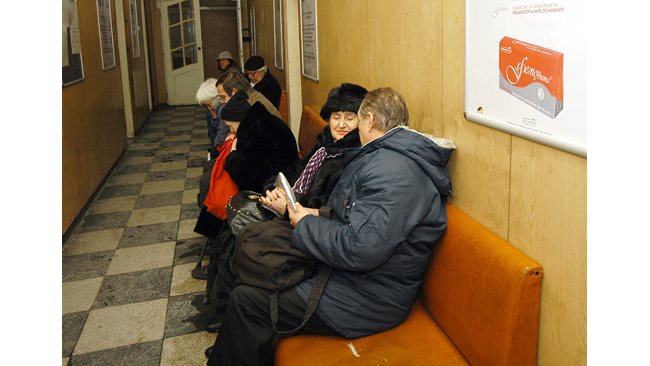–
–
The poor cannot take adequate care of their health because 61.8% of them spend too much on it. PHOTO: “24 HOURS”
–
POver the last three years, all countries in Europe have raised their standard of living, including Bulgaria.
However, our country is still in the queue, without its eternal companion in the negative rankings – Romania, which has moved forward by 7 positions and its population
there is a higher
standard from
the one in Estonia
and Greece
This is shown by Eurostat data on actual individual consumption, published on Thursday.
The indicator is new, measured since 2018 and contains data on the actual consumption of goods and services in a country, whether paid by households, the state or non-profit organizations. This avoids the distortion that some services, such as education and health, are organized differently in different countries.
The data show that in Bulgaria
the actual
consumption
has improved
for the latter
three years,
as it used to be 57% of the EU average, while it is now 61%. But in Romania, the percentage of 74 3 years ago is now 80 (see infographic).
In Luxembourg the figure is 45% above the European average, and in Germany – 24%. For Luxembourg, however, the explanation is that in this miniature country there are many workers from other countries who increase GDP, but at the same time do not participate in the calculation of gross domestic product per capita. The latter is one of the elements for the “actual consumption” indicator.
Apart from the lowest standard of living, our country also has the highest inequality in Europe. This in turn has a strong impact on education and health, as the poor do not have access to education and the labor market, and
can not
to lay
adequate
taking care for
your health
is claimed in a new study by the Institute for Market Economics, which will be published next week and was presented on Thursday to the media and members of the National Association of Municipalities in Bulgaria.
61.8% of the poor say that their health care is expensive, and among them there are three times more people who assess their health as poor. For the rest of the Bulgarians, the money for health seems too significant to only 24% of the respondents, according to the data of the institute.
At the same time, in the richer municipalities the results of the exams in Bulgarian language and literature and in mathematics after 7th grade are invariably higher than in the poorer ones, the data also show.
– .


